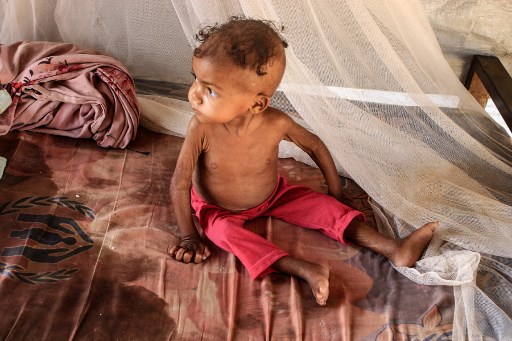
403
Sorry!!
Error! We're sorry, but the page you were looking for doesn't exist.
Severe food crisis emerges in southern Africa due to worst drought in the last 40 years
(MENAFN) A severe food crisis has emerged in southern Africa due to the region's worst drought in the last 40 years, leaving 15 million people in urgent need of food assistance beginning this month. The drought, primarily affecting Zambia, Malawi, Zimbabwe, Mozambique, Namibia, Angola, Botswana, and Lesotho, has been exacerbated by the El Niño weather phenomenon that has been in effect since July 2023. The World Meteorological Organization has reported that the drought has devastated agricultural production, leading to the worst harvest in the last five years and leaving regional countries grappling with critically low food stocks.
The Southern African Development Community (SADC) reports that the total population of the most affected countries is approximately 130 million, with over half—around 68 million—requiring varying levels of assistance due to the combined effects of drought and famine. The urgency of the situation is underscored by a recent World Health Organization (WHO) report, which indicates that more than 22 million people in the region are experiencing high levels of food insecurity. With only six months remaining before the next harvest period in April, food stocks have reached a critical level, raising alarms about an impending humanitarian crisis.
Malnutrition and water scarcity are further compounding the challenges faced by these populations, as they are expected to lead to a rise in epidemic diseases in the coming months. Alarmingly, the report highlights that 2 million children are currently suffering from acute malnutrition, with 500,000 facing severe "wasting," a condition characterized by extreme weight loss and muscle wasting. This poses a significant risk to child health and survival in the region.
As the situation unfolds, the need for urgent and coordinated humanitarian assistance is paramount to address the immediate food needs of affected populations and mitigate the long-term impacts of the crisis. Without timely intervention, the region faces not only a food crisis but also a broader public health emergency that could have devastating consequences for millions.
The Southern African Development Community (SADC) reports that the total population of the most affected countries is approximately 130 million, with over half—around 68 million—requiring varying levels of assistance due to the combined effects of drought and famine. The urgency of the situation is underscored by a recent World Health Organization (WHO) report, which indicates that more than 22 million people in the region are experiencing high levels of food insecurity. With only six months remaining before the next harvest period in April, food stocks have reached a critical level, raising alarms about an impending humanitarian crisis.
Malnutrition and water scarcity are further compounding the challenges faced by these populations, as they are expected to lead to a rise in epidemic diseases in the coming months. Alarmingly, the report highlights that 2 million children are currently suffering from acute malnutrition, with 500,000 facing severe "wasting," a condition characterized by extreme weight loss and muscle wasting. This poses a significant risk to child health and survival in the region.
As the situation unfolds, the need for urgent and coordinated humanitarian assistance is paramount to address the immediate food needs of affected populations and mitigate the long-term impacts of the crisis. Without timely intervention, the region faces not only a food crisis but also a broader public health emergency that could have devastating consequences for millions.

Legal Disclaimer:
MENAFN provides the
information “as is” without warranty of any kind. We do not accept
any responsibility or liability for the accuracy, content, images,
videos, licenses, completeness, legality, or reliability of the information
contained in this article. If you have any complaints or copyright
issues related to this article, kindly contact the provider above.


















Comments
No comment